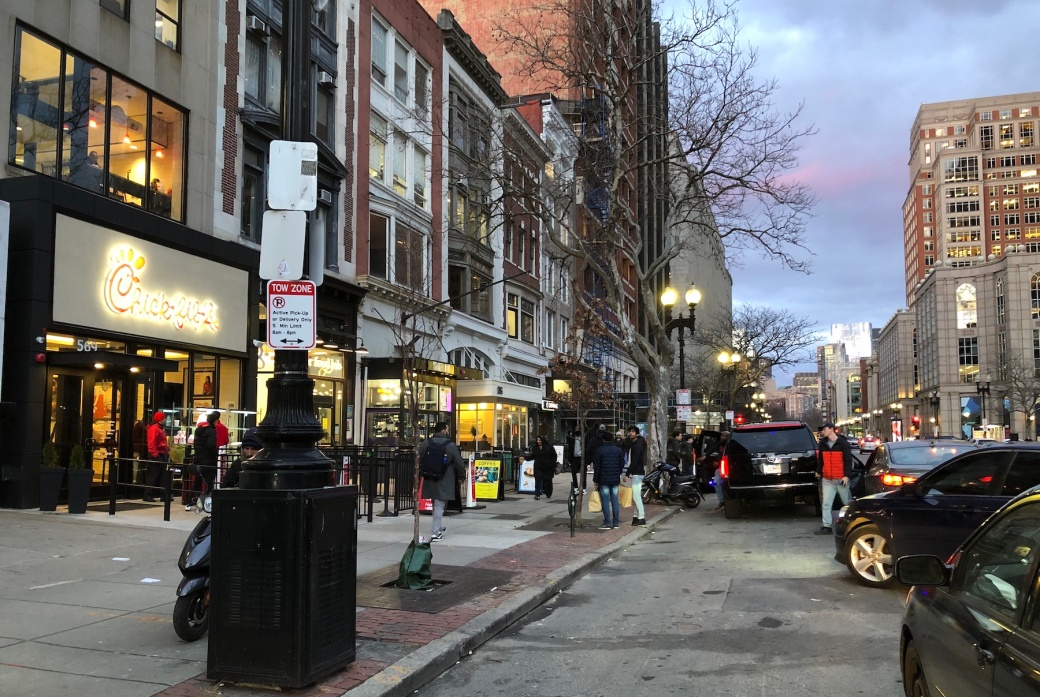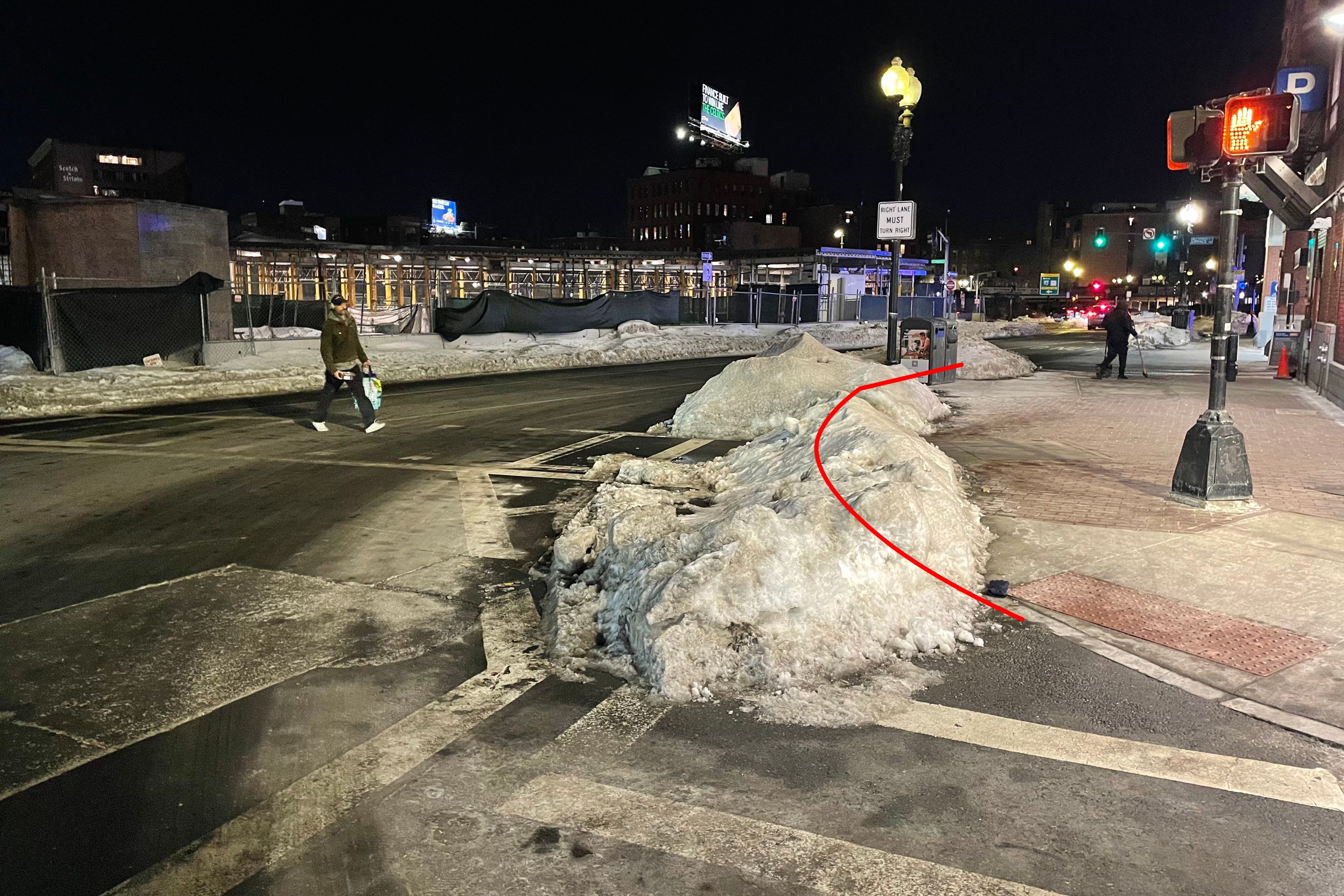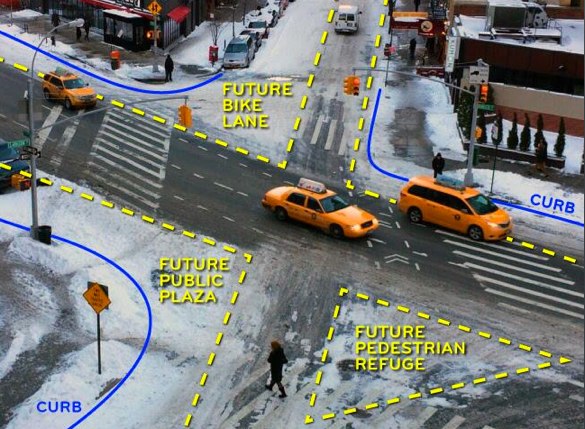As part of Mayor Wu's proposed expansion of the citywide protected bike lane network, the City of Boston is planning a new parking-protected bike lanes on Berkeley and Boyslton Streets through the Back Bay neighborhood.
The plans would generally reduce the number of lanes on both streets from three to two to install a single parking-protected bike lane on each street.
The Berkeley Street bike lane would run northbound along the eastern curb of the street, and connect the new Tremont Street bike lanes to the Charles River Esplanade. It would complement an existing southbound bike lane on Arlington Street, one block away.
The new Boylston Street bike lane would run eastbound, mostly along the northern curb of Boylston Street, between Massachusetts Avenue and Arlington Street. It would complement an existing westbound parking-protected bike lane on Beacon Street.
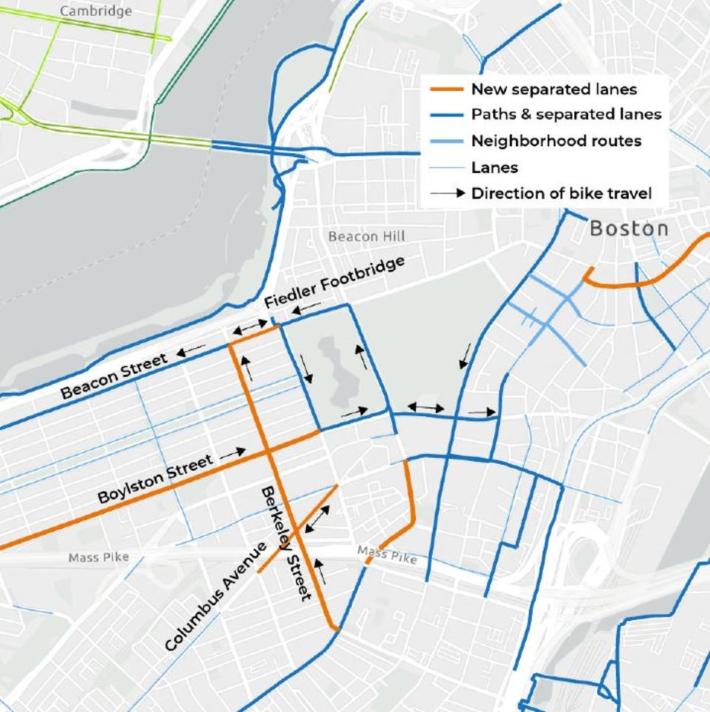
Additionally, the city would install a new two-way cycletrack on the north side of Beacon Street between Berkeley and Arlington Streets, to connect to the existing bike lanes around the Public Garden and to the Charles River Esplanade via the Fiedler Footbridge.
The project would also create dedicated bus lanes on key choke points around Copley Square, where two high-ridership bus routes loop around Boylston, Berkeley, and St. James Streets to serve Back Bay Station.
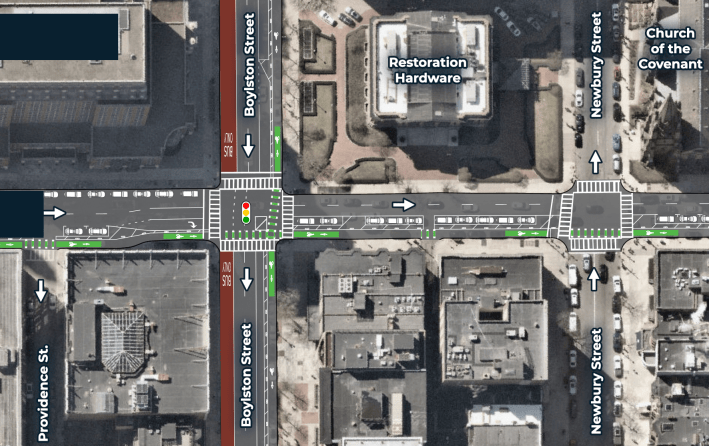
Berkeley Street would get a short center-running bus lane between Columbus Avenue and St. James Avenue, where buses turn west towards Copley Square. Boylston would get a refurbished bus lane (which was originally installed during last year's Orange Line shutdown) between Ring Road and Arlington Street.
Both bus lanes would reduce trip times on the MBTA's 9 and 39 buses, which rank among the T's highest-ridership routes.
Before the pandemic, those two bus routes carried about 18,000 riders every weekday.
Back Bay NIMBYs: 'someone will die'
Elliot Laffer, a man who's been involved with the Back Bay Neighborhood Association for nearly half a century, has taken to the airwaves to foment a moral panic over the city's plans.
On June 11, Laffer told Drew Karedes of Boston 25 News that the city's plans will make the street more dangerous, contrary to all evidence from similar traffic-calming projects elsewhere in Boston and across the U.S.
"I’ve said publicly that I think, at some point, someone will die, and the someone who is most likely to die is someone on a bike,” said Laffer.
In a WBZ segment that aired a few days later, on June 16, Laffer repeated the same sound bite.
"We're not opposed to bike lanes, we're opposed to unsafe bike lanes... I have said publicly before that if you put this lane in place someone will die. And the someone who will die will be someone on a bike," Laffer told reporter Brandon Truitt.
It's a sound bite that's practically made for TV: saturated with shock value and bereft of validity.
In New York City, street redesigns that that reduced space for motor vehicles in order to create protected lanes for bicycle users on 8th and 9th Avenues led to a 35 to 58 percent reduction in injuries among all road users, including drivers and pedestrians.
In 2019, a broader study of crash data from 12 large U.S. cities over 13 years found that neighborhoods with a greater prevalence of protected and separated bike facilities were "strongly associated with better road safety outcomes for all road users."
Unfortunately, neither WBZ's Truitt nor Karedes of Boston 25 News took the opportunity to challenge Laffer's claims.
City hosts open house Thursday evening
The City of Boston will host an open house for its Berkeley Street plans on Thursday evening, at the corner of Berkeley and Beacon Streets, from 5 to 7 pm.
The Back Bay Neighborhood Association is also lobbying members to email city councilors and State Rep. Jay Livingstone. Find their contact information here.
